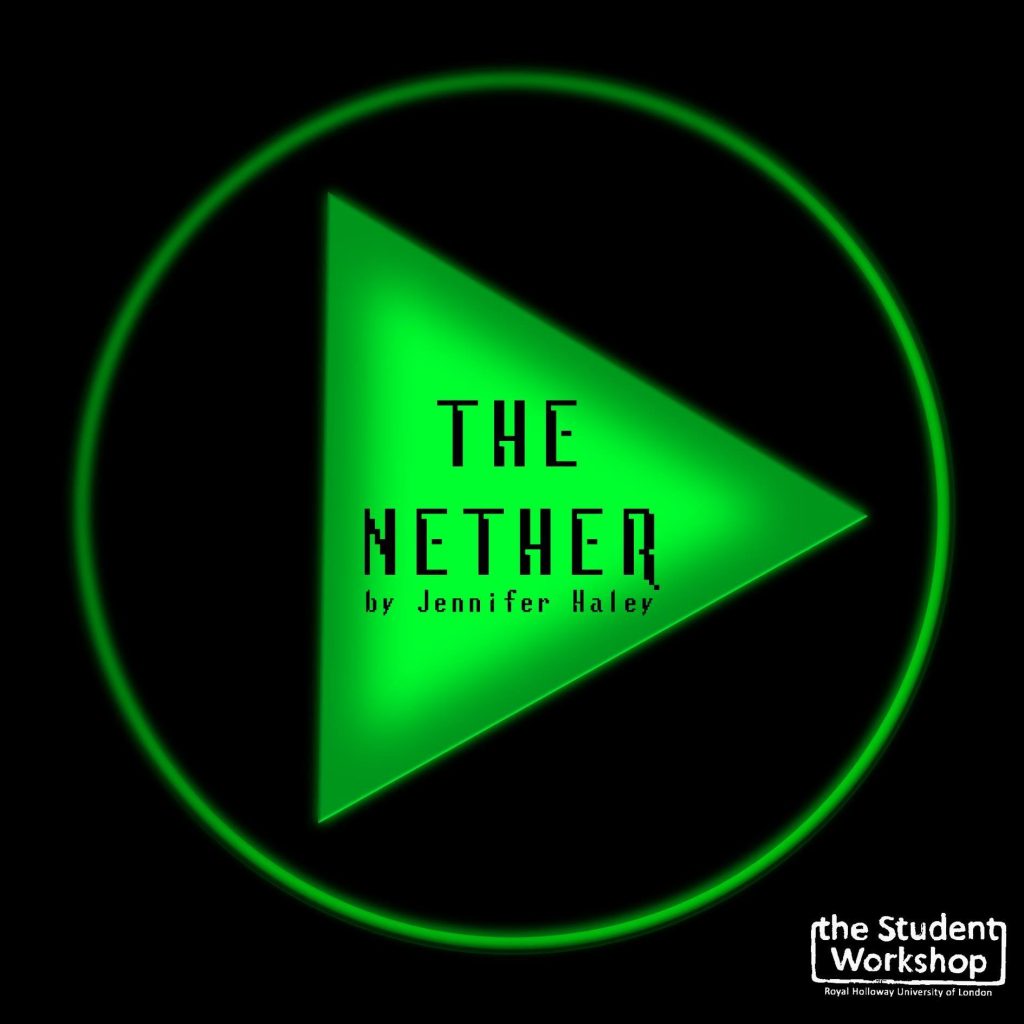
Bethany Wilkinson set herself a very difficult challenge – to direct a complicated, dark play in a very limited rehearsal period and present it in the, frankly, bare setting of the rehearsal room in the Drama department. She succeeded in completing this challenge and this can be vouched by the audience members who were lucky enough to witness this show (only 30 tickets per show for 2 performances were available).
The Nether by Jennifer Haley is a look at a dystopian not-too-distant future where the internet grew into what is referred to as The Nether, a virtual reality system where users can live a consequence free existence and they can choose to transition into Shadows, living out a fantasy while their actual bodies wither away. The lead character, Detective Morris, is after a specific user referred to as ‘Papa’ who runs a server called The Hideaway. In this realm users interact with employees which take the identity of children. The ethical discussions of crime, emotions, consciousness and victimhood all appear and are left for the audience to ponder.
The space was used in an efficient, imaginative and creative way. Having the curtains drawn only to reveal the trees seen through enormous windows in a crucial scene was a very clever device. The constant moving around of chairs represented the transitions between spaces as well as realms effectively. The simple set and representative rather than realistic costume design worked well with the overall directorial concept and the play’s own demands.
The second well executed element must be the physicality of the actors. Special mention goes to Saskia Douglas, as she carries the weight of this ethical dilemma of a show on her stoic shoulders as the detective. Her drive, emotions, and the journey she takes the audience on are heart-breaking and so well represented with her shark-like circling during the investigation, her intimidating stance and her overall aura of determination.
Teuntje Post’s portrayal of Iris was devastatingly mesmerising. She captured the essence of childlike wonder and innocence so compellingly, and this was such a key element of the narrative. Sean Simmons-Barry’s Papa/Simms was perfectly animated, predatory arrogant and surprisingly morally complex. The cast was completed by Dominique Reed as Doyle and Will Maxwell as Woodnut, who both displayed one facet of their character exceptionally well, and it would have been interesting to see this developed further.
The transitions could have certainly been performed smoother, as the theme from the film The Imitation Game seemed to have come on inconsistently during the physical transitions of the actors moving chairs around the space. If the timing was consistent and the music came on and off in the correct time, this could have been another successful element, but this way it was more of a distraction. However, what must be understood is the speed at which this piece had to be put together, and the key elements and main themes of the play were conveyed very effectively, which is very difficult to do.
The upcoming Student Workshop productions include boys wear their hats backwards so they can kiss other boys, which is running 9 and 10 November, and Alphabet, which is on 23 and 24 November
